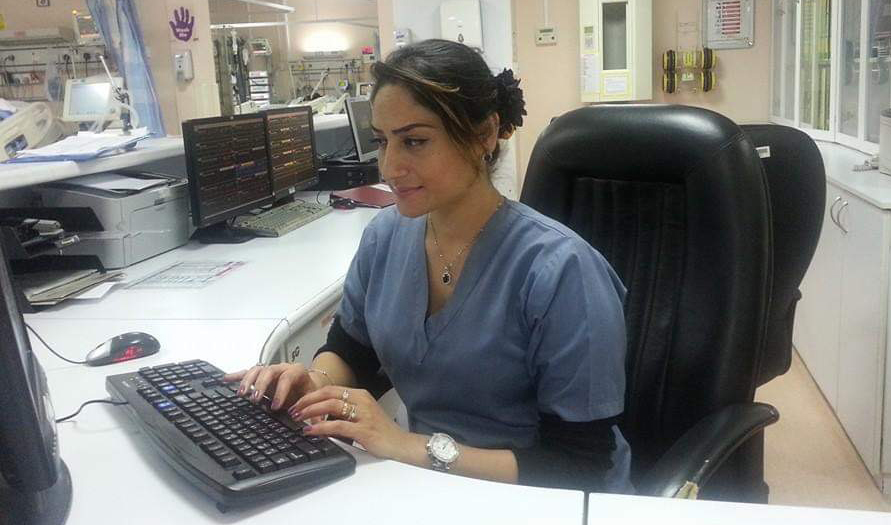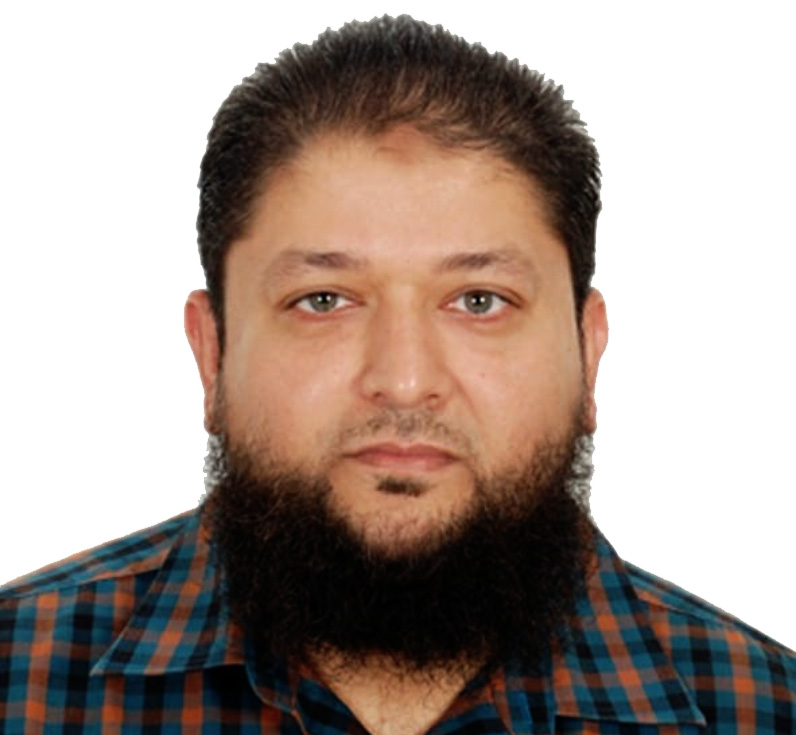DUBAI: It was a short phone call, but one that could change the course of Dr. Shahbano Afzal's life in the UAE for the next decade.
Last week, Dr. Afzal, 48, was told she was among 212 medics chosen for the UAE’s "golden visa" – a 10-year residency program initiated by Sheikh Mohammed bin Rashid Al-Maktoum as an appreciation of healthcare workers on the country’s COVID-19 frontlines.
“The HR called me and said that I had been chosen for the golden visa and that I should submit my passport to get it stamped. The reality did not sink in at that point, but I am happy that my services are being rewarded in this way,” Dr. Afzal, a Pakistani expatriate who has been working as an ICU specialist at Dubai’s Rashid Hospital for the past eight years, told Arab News on Friday.
The golden visa initiative was announced last year by Sheikh Mohammed, the UAE’s vice-president and ruler of Dubai, to reward doctors, scientists, innovators, researchers, investors, and entrepreneurs, for exceptional service in their respective fields.

Dr. Shahbano Afzal during her shift in the Intensive Care Unit at Rashid Hospital last week. (Photo courtesy: Dr. Shahbano)
While the UAE does not grant permanent residency to expats, the 10-year visa program provides the country’s most extended stay as regularly renewable visas are valid for only two years.
Additionally, golden visa holders are also eligible to apply for residency permits for their families for the same period.
In comments to Emirates News Agency (WAM) last week, Humaid Al Qutami, Director-General of the Dubai Health Authority, said the medics were being recognised for “selfless dedication" to their work.
“By demonstrating selfless dedication in caring for others, they have played significant roles in helping Dubai, and the UAE contain the COVID-19 pandemic,” he told the UAE's national news agency.
Nearly 1.5 million Pakistanis reside in the UAE, though there are no confirmed figures to determine how many are employed in the healthcare sector.
On May 15, Dr. Mohammad Usman, a 56-year-old general practitioner working in Abu Dhabi, became the first Pakistani doctor to die from coronavirus in the UAE.
However, neither the threat of the disease nor the long hours seem to act as a deterrent for healthcare professionals like Dr. Afzal, who conceded she was “a bit hesitant” to handle COVID-19 patients at first, but said the fear took a backseat before the call of duty.
"Often, I am the only one next to their bedside and have to pray for them. I am everything for them,” Dr. Afzal, who is originally from Lahore, told Arab News while talking about patients who were not allowed to meet relatives for fear of spreading the infection.
Still, she added, a majority of people did not understand the severity of the outbreak.
"If anyone saw patients struggling to live in the ICU, they would know how real the virus is," she said, adding that despite the hardships, there was a sense of purpose at the end of each day.
“I have to perform procedures on people who are struggling to live. It is gratifying to see many of them come out of the difficult phase and walk out of the ICU healthy. At that point, it feels like I have achieved something,” she said.
It's this shared sense of achievement and gratitude felt by other Pakistani doctors chosen for the visa program as well-- doctors like Dr. Ahmed Suhail Masood, a 48-year-old emergency medicine specialist at Dubai Airport Medical Centre.
“It was a pleasant surprise, and I am extremely delighted and grateful that the government has given me this recognition,” Dr. Masood, who is originally from Pakistan’s eastern city of Sargodha, told Arab News.
“The airport centre is like an emergency ward where we screen passengers who can be very sick and need our attention. Nevertheless, I was never double-minded in doing this duty,” he said.
For yet others, the extended visa program is an opportunity to pay it forward.

Dr Mansoor Akhtar Gulfam, General Surgeon at the Dubai Airport Medical Centre in a recent handout. (Photo courtesy. Dr. Mansoor)
“The golden visa is a big opportunity to give back to the country where I grew up. When I received the call, I felt I had been given recognition and a sense of job security,” Dr. Mansoor Akhtar Gulfam, 35, who works as a general surgeon at the Dubai Airport Medical Centre, told Arab News.
“The first time I wore a PPE [suit], I turned stiff because I would have to wear it for eight to 12 hours depending on the work,” he said.
"But,” he added, “This is what we have committed to."
















